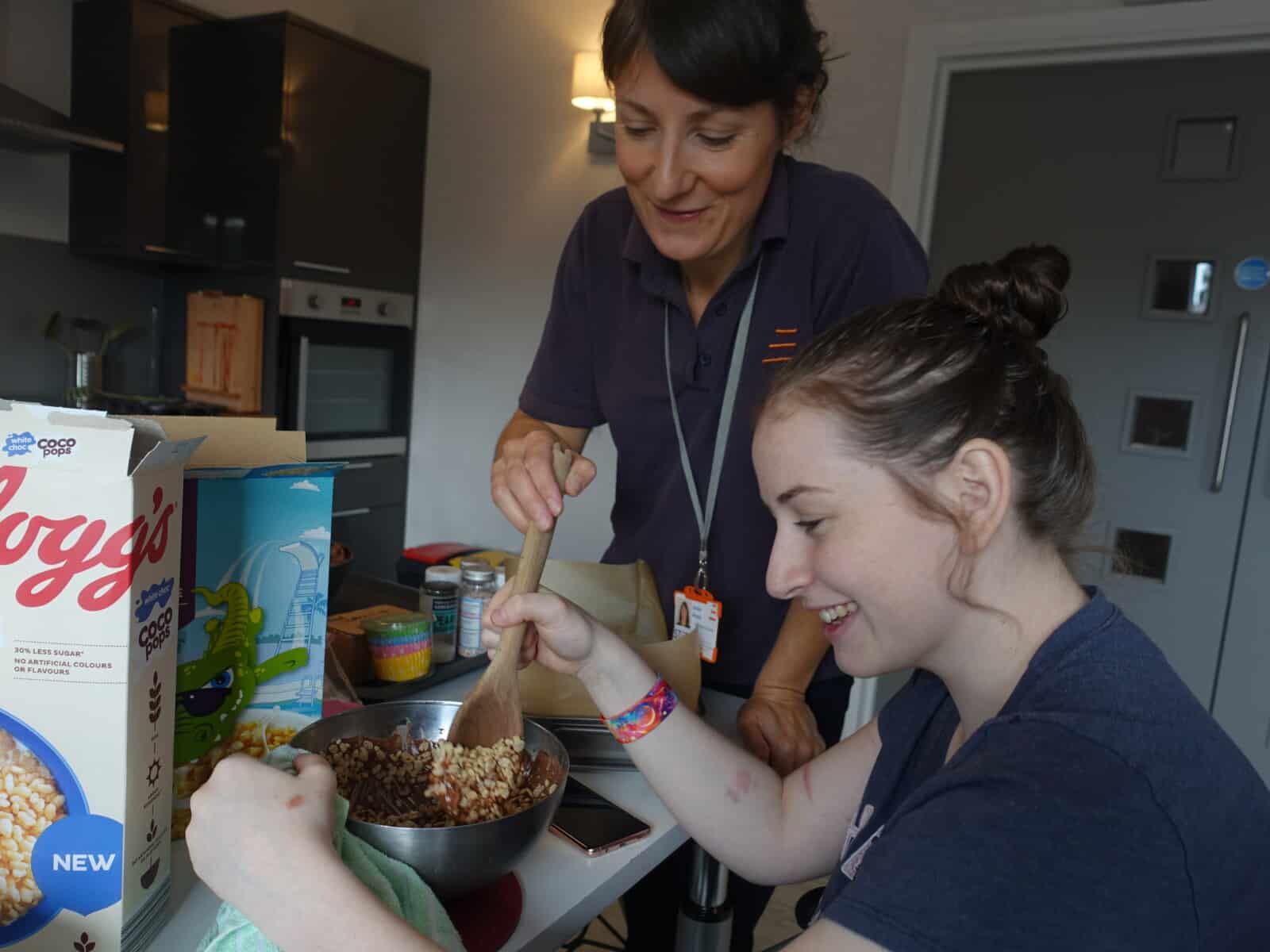At STEPS, we have created a unique environment that enables people to access a wide range of therapies and medical specialists all under one roof. This includes access to Consultants in rehabilitation medicine and spinal injuries. We also have a team comprising of physiotherapists; speech and language therapists; neuro-psychologists; neurologic music therapists; prosthetic and orthotic specialists; nurses experienced in complex care and occupational therapists.
All of whom work collaboratively to combine their expertise and provide rehabilitation services to clients who have suffered traumatic injuries and neurological conditions.
Our residential, day rehabilitation and active respite programmes are for clients aged 16 and over.
During Occupational Therapy week, we highlight the importance of occupational therapists and the role they play during a person’s rehabilitation.
Occupational Therapists
 The team of occupational therapists at STEPS Rehabilitation play a hugely important role in supporting our clients throughout their rehabilitation journeys, they are fundamental to our clients regaining skills which enable them to carry out the daily activities.
The team of occupational therapists at STEPS Rehabilitation play a hugely important role in supporting our clients throughout their rehabilitation journeys, they are fundamental to our clients regaining skills which enable them to carry out the daily activities.
By providing practical support and guidance, occupational therapists can empower individuals to overcome barriers and relearn skills such as dressing, cooking and personal care. These skills are vital and enable our clients to live as independently as possible once they leave STEPS.
Occupational Therapists at STEPS Rehabilitation
Our team of occupational therapists work closely with each client, their family and the rest of the team at STEPS, to create personalised rehabilitation plans.
The holistic approach identifies the activities, hobbies and interests that are important to the individual person, and the modifications and adaptations that need to be implemented to make these possible.
Practical support such as managing money, and advice on how a person can continue in employment or study can also form part of a person’s rehabilitation plan.
Fatigue is often a common symptom experienced during the rehabilitation journey by clients who have suffered an illness or condition such as a brain or spinal injury or a neurological condition. By working with the client, the severity and type of fatigue can be identified, and the OT can then develop a fatigue management plan that complements their recovery, whilst also managing the client’s need for rest.
By building a programme that integrates the client’s capabilities, activities and recuperation, fatigue can be minimised, and the client can reach their goals.
By assessing each client’s current and future functional abilities, our occupational therapists can also support a person’s transition home following their period of intensive rehabilitation.
With specialist experience and knowledge, they can identify the adaptations that may be required by a person in their home, whilst also taking into consideration the requirements of their family and other important factors, such as the locality to future care providers, schools or place of work.
By working closely with a design team, they can advise on adaptations that can be made to a home, to make it suitable for a person living with a disability. These can include wheelchair accessible kitchens and bathrooms, level access and widened doorways.
Occupational therapists play a vital role in the overall recovery of clients, they support both physical and mental health and equip and empower individuals with skills that will enable them to live as independently as possible.
To find out more about occupational therapists, you can follow ‘Occupational Therapy Week’ on Twitter - #OTWeek2022 #ChooseOT.
For more information, please visit our occupation therapy page, email us, or call us on 0114 258 7769.
